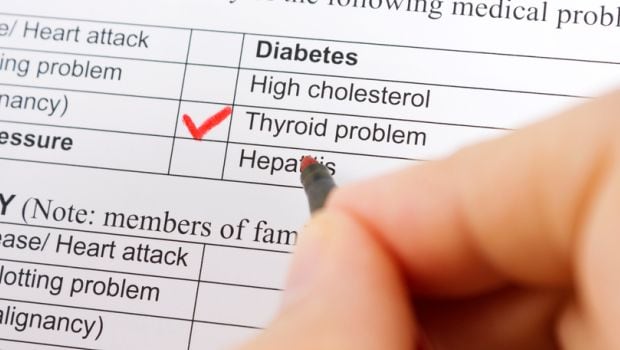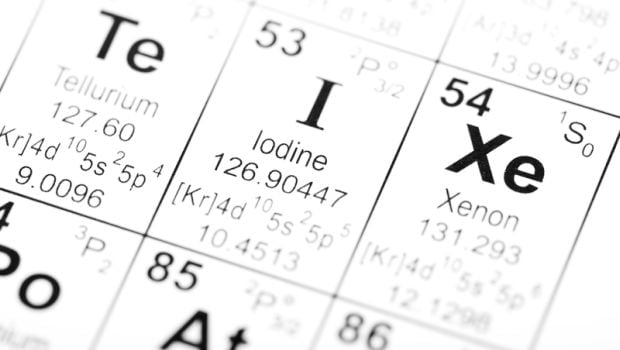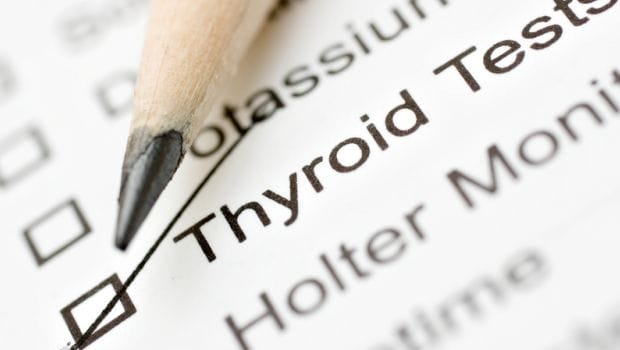
Have you been watching your diet, yet helplessly putting on a lot of weight? Unable to excel academically even after putting in considerable effort? Have you had the ill-fate of miscarriages or facing difficultly in conceiving? Well, you might be suffering from what is known as thyroid disease.
We’ve all been taught about the importance of thyroid in our body during biology classes in school. Thyroid, a butterfly-shaped gland located in the neck’s lower frontal region and wrapped around the trachea, is responsible for regulating the body’s hormones which play a huge role in the various metabolic processes, aiding growth and development.
According to the Thyroid Foundation of Canada, about 200 million people in the world suffer from thyroid disease, and it is four to seven times more common in women. About 42 million Indians suffer from thyroid disease, including children.
What Causes Thyroid Disease?
Iodine is an essential mineral for the synthesis of thyroid hormones and the normal functioning of the gland. Any disturbance in the aforementioned equilibrium can lead to hypothyroidism (dip in blood thyroid levels), hyperthyroidism (overdrive of thyroid hormone in the blood) or other thyroid related diseases. Further, structural abnormalities in the concerned gland can also be held responsible, as well as unhealthy lifestyle choices.
To know more, click on – Understanding the Importance of Iodine.
“One key factor in the diagnosis is the measurement of thyroid levels in the body i.e. Triiodothyronine (T3), Thyroxine (T4) and THS. Whether a particular case is symptomatic of thyroid is determined by if the symptoms have long persisted or is just a change in the way one used to feel previously. The disease is less likely to be present in the former scenario,” says Dr. Ambrish Mithal, Endocrinologist, Medanta Medicity.

Symptoms of Thyroid
The symptoms of Thyroid, though varied and non-specific, depending on conditional severity, have health related adversities.
A. Hypothyroidism
Of Hypothyroidism (the more common variety), occurring due to auto immunity i.e formation of antibodies against the thyroid, the symptoms are –
1. Extreme fatigue (physical, mental or both) and lethargy in most situations. The person falls short of energy and motivational levels to even begin an activity. They face difficulty in getting it done as well. Words like tired and exhausted best describe the general state of patients.
2. Muddled up cognitive process coupled with lingering sadness. The person becomes increasing confused and depressed.
3. Feeling excessively cold all the time. Hands and feet get swollen (due to fluid retention) and even go on to become numb.
4. Skin becomes dry, marked by dry patches and small fine flakes. This occurs due to lack of moisture content in the upper most layer of the skin. Same happens to one’s hair. The latter even start falling off to a large extent. Itching and scratching get hard to resist.
5. Repeated bouts of constipation and other gastro- intestinal issues.
6. Menorrhagia troubles women. They face excessive, prolonged and irregular period bleeding. Further, difficulty in conceiving might be witnessed too.
Treatment: “It cannot be cured but can be completely controlled. The treatment involves external injection of thyroid hormone to make up for the lack of it the body system,” says Dr. Mithal.

B. Hyperthyroidism
Also called Grave’s disease, it is an autoimmune disease and often results in an enlarged thyroid. It could occur due to stress, genetics, infection, giving birth, etc. The symptoms are –
1. Considerable weight loss. One may shed kilos despite adequate appetite.
2. The individual becomes anxious and tensed. This happens since every bodily function gets speeded up. The rocketed anxiety and irritability may even hinder with sleeping patterns. Even eyes are likely to turn more prominent and ‘popped out’.
3. Skin becomes moist and sweaty. This is because of increased profuse perspiration.
4. Heart palpitates at a faster rate, coupled with hand and entire body tremors. The elderly are at a risk of heart failure as well.
5. Diarrhea, though uncommon, is likely, along with other digestive manifestations.
6. Scanty menses become prominent amongst women folk. Menstrual flow may lighten and occur less often.
Treatment: Patients of this nefarious condition are treated by specific medications, though no single treatment is suitable for all.

Dietary Dos and Don’ts for Thyroid Patients
In general, since iodine is an essential mineral, it should be made a part of our regular diet. There are various food sources of iodine, such as seaweeds, eggs, cod fish, tuna, eggs, strawberries, cranberries, etc. Click here to know more – Iodine Food Sources.
UNICEF recommends the following daily amounts of iodised salt:
age 0-7 years – 90 micrograms (mcg)
age 7-12 years – 120 mcg
older than 12 years – 150 mcg
pregnant and lactating women – 200 mcg
Shalini Manglani, Bangalore-based Nutrition and Weight Management Expert, shares, “The list of goitrogenic produce one should avoid includes cabbage, cauliflower, Brussels sprouts, broccoli, cress and uncooked bhindi. Limited use of mustard greens, kale, spinach and lettuce is also recommended. Soya and soy products like tofu are a strict no-no.”

To know more, click on – The Thyroid Diet
What is threatening is that inspite of the alarming figures, many people are not even completely aware about their condition. This alarming disorder thus needs to be timely combated with the right approach monitored under expert guidance.
[“source-ndtv”]










